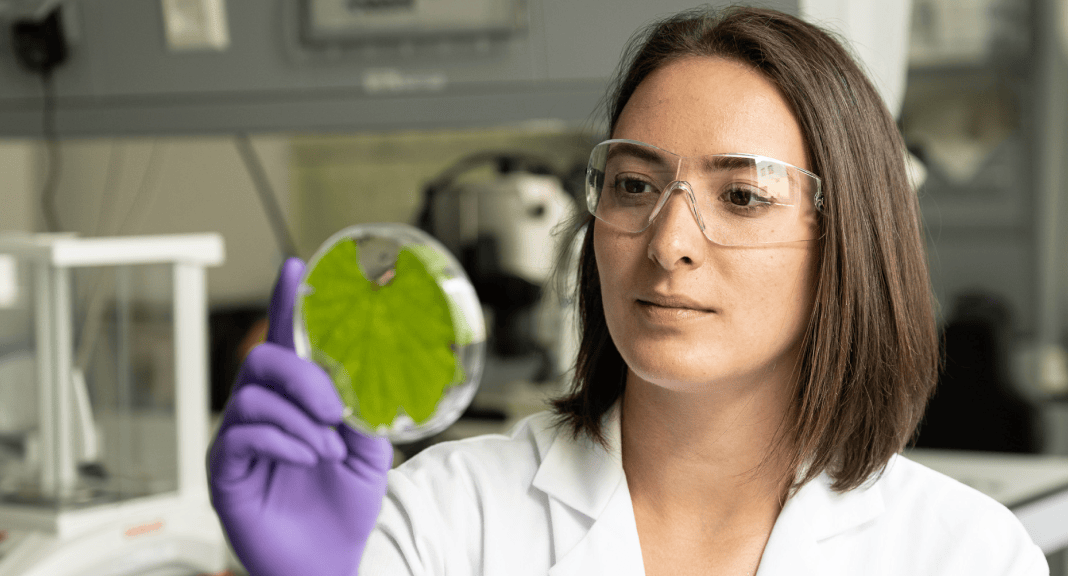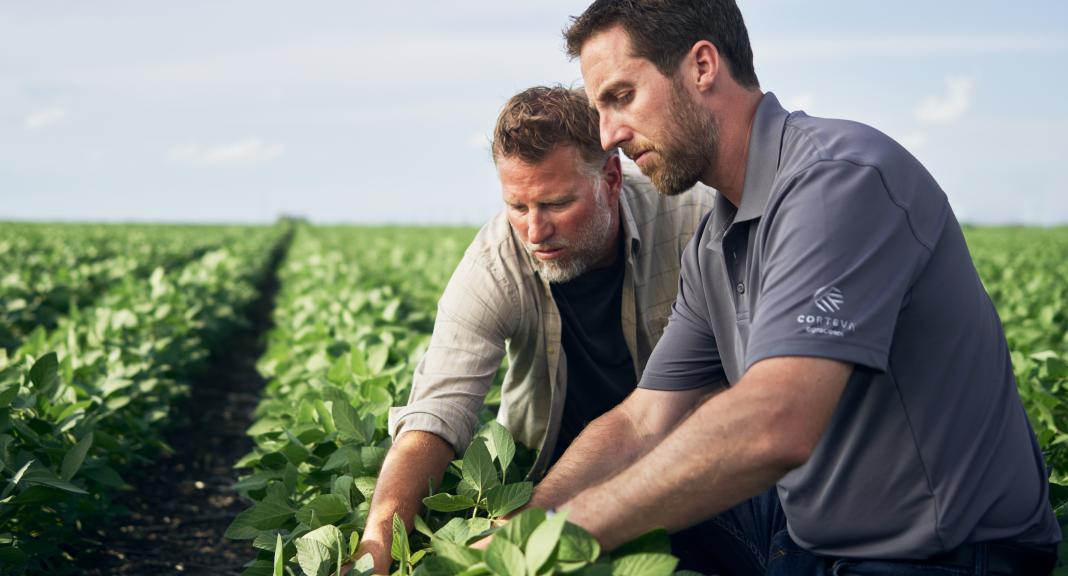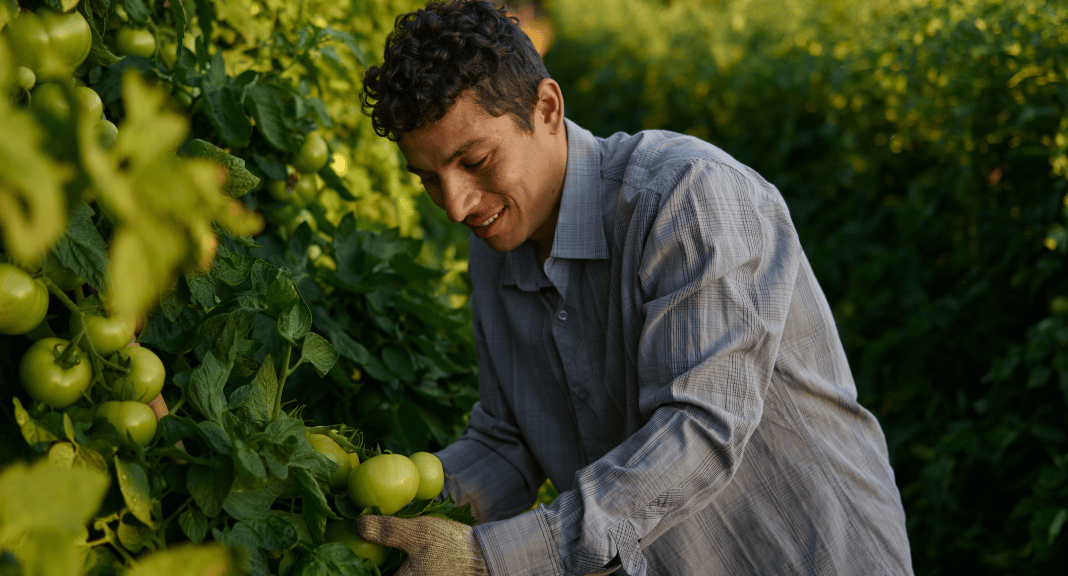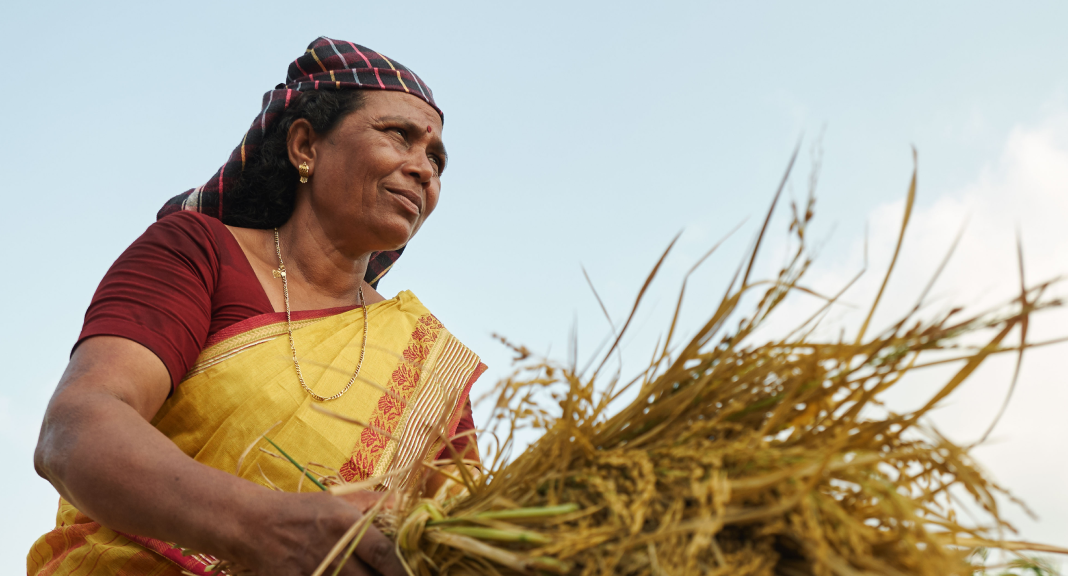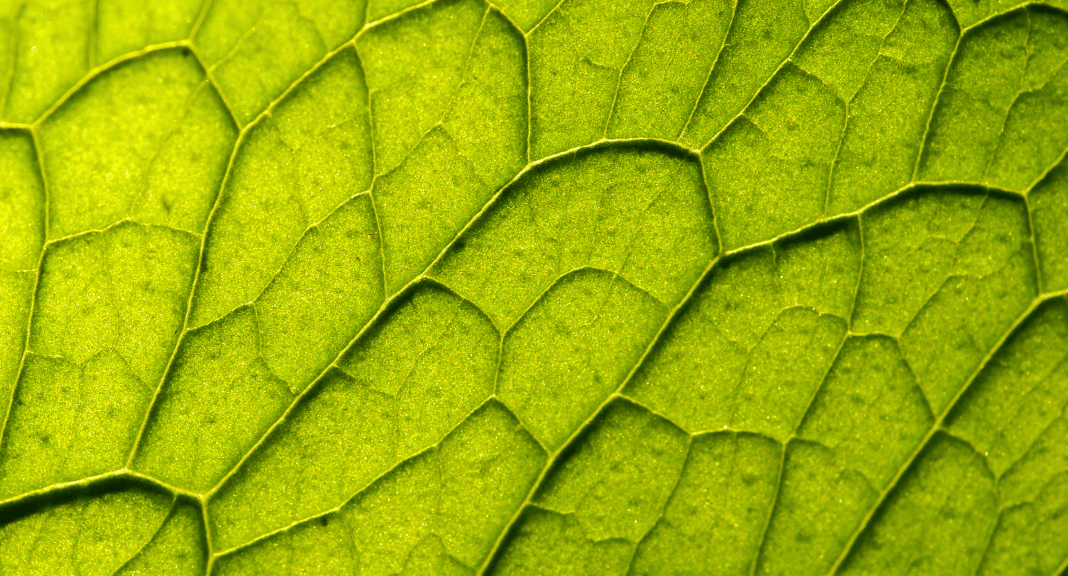Biodiversity focus areas
How we will achieve our goal:
Demonstrated biodiversity advantages of our new technologies and systems
2.9M+
acres
(2021-2024)
Crop protection and biological crop health solutions
Improved genetic gain and yield protection to help prevent additional land-use needs
3.8M+
acres
(2021-2023)
Increased productivity through genetic gain
Adoption of biodiversity initiatives at Corteva facilities and production fields
13,000
acres
(2021-2024)
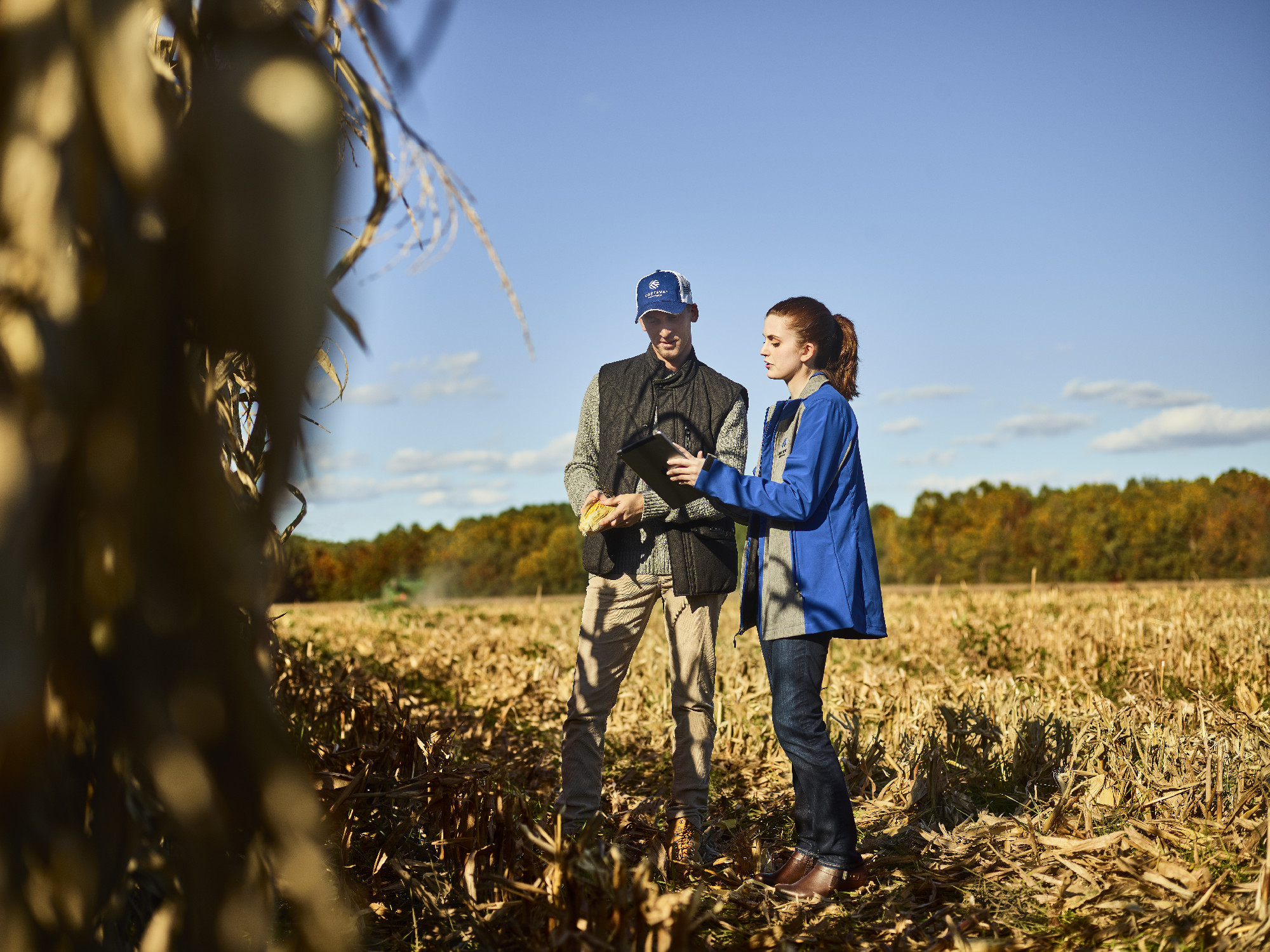
Product innovation
We offer new technologies and systems with demonstrated biodiversity advantages to farmers and ranchers, while also providing educational resources on best management practices. We also offer resources to help farmers and landowners support monarch butterflies and other beneficial species on their farms and in adjacent areas, such as Best Management Practices for Farm-Adjacent Biodiversity.
Examples of products with biodiversity advantages:
UtrishaTM N is a biostimulant that improves nutrient use efficiency and provides supplemental nitrogen directly to crops for improved plant health and increased yield potential.
We’re helping farmers increase the availability of soil and water resources for native vegetative and wildlife habitat by targeting invasive species on 190,000 acres of grazing lands through LandVisor® advanced brush management.
Productivity
We continue to improve genetic gain and yield protection to help prevent additional land-use needs.
Increasing genetic gain
Our seed pipeline is built on almost 100 years of Pioneer's continuous plant breeding expertise. The result is genetic gain (increased yield potential and productivity) which enables farmers to produce more food and fuel on the same land, which can help reduce the need to put more land into production.
AcreNext® revolutionizes rice farming with its direct seeded, high-yield hybrid seeds, enabling mechanized planting and efficient crop protection, such as Rinskor™ active, without flooding the field. It can reduce water use by 40%, GHG emissions by 45%, and manual labor by 50%. It's a more sustainable way to grow healthier, faster-maturing rice crops with less water and labor.
Conkesta E3® soybeans provide farmers in Brazil with a much-needed solution to increase their harvests while addressing complex challenges such as insect resistance and tough weed control.
The transgenic soybean event in Conkesta E3® soybeans is jointly developed and owned by Corteva Agriscience and M.S. Technologies L.L.C.
Partnerships
We support partnerships that enhance biodiversity and collaborate with like-minded organizations to advance our shared goals.
In 2024, we added these partnerships to our program:

New partnerships with The Nature Conservancy:
- The Brazil Producer Hubs program aims to support cattle producers with assistance restoring degraded soils, increasing productivity, and reducing additional land needed for cattle.
- The Argentina Regenerative Agriculture program aims to help advance the adoption of more sustainable agricultural practices in corn and soybean rotations in the Gran Chaco region, as well as preserve native forests in the region.
The Nature Conservancy is a global organization that focuses on conserving the lands and waters on which all life depends, with significant efforts dedicated to protecting biodiversity.
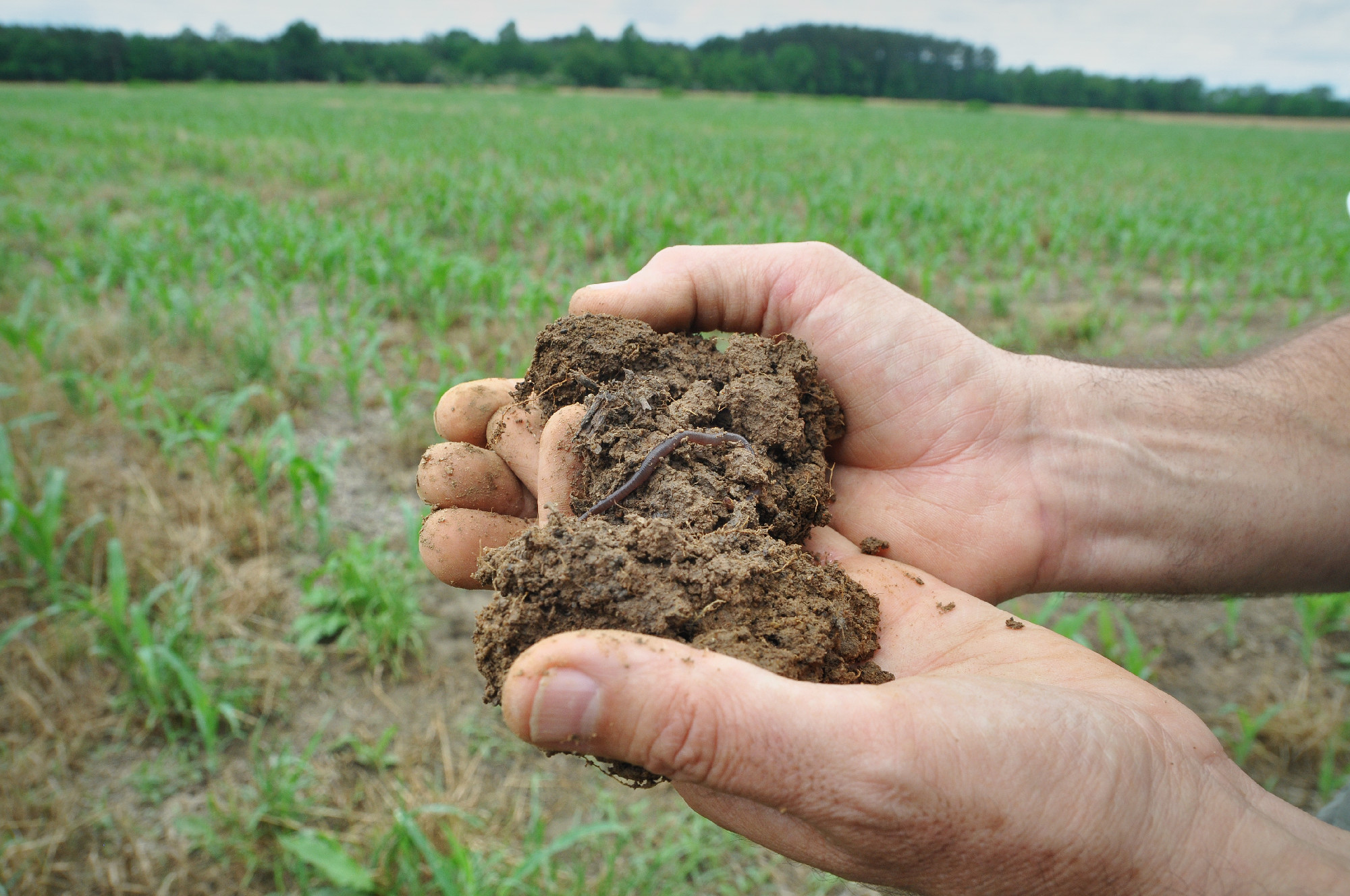
Vision for Adapted Crops and Soils Champion
We have also signed on as a Vision for Adapted Crops and Soils (VACS) Champion with the U.S. Department of State. The VACS program seeks to build a resilient food system grounded in diverse, nutritious, and climate-adapted crops grown in healthy, fertile soils.
Our ongoing partnerships include:
Conservation Forage Program
We are part of a five-year project with the National Audubon Society to work with farmers, ranchers, and landowners to convert marginal cropland back to grasslands. We provide funding and technical assistance for the program.
74
landowners participating
7,825
acres restored to natural habitats
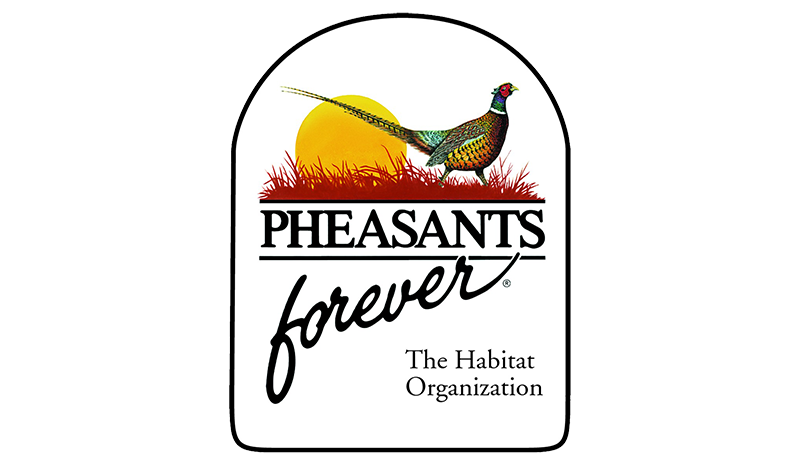
Rights of Way Habitat Program
We are working with Pheasants Forever to improve vegetation and wildlife biodiversity within energy and utility rights of way, roadsides, and other non-crop areas.
4,500
land assessments completed
3,267
acres of integrated habitat management
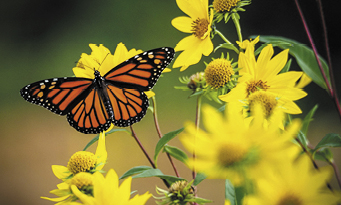
Corteva Grows Pollinator Program
We have helped create more pollinator habitats with Pheasants Forever and National 4-H. Over 30,000 4-H youth have participated in the program, boosting pollinator populations (including monarch butterflies) and learning to build habitats in their own communities.
88
pollinator gardens planted globally near our sites

Grassland Restoration through Conservation Ranching Program
Finally, we achieved our goal with the Grassland Restoration through Conservation Ranching Program, our three-year partnership with the National Fish and Wildlife Foundation, Texas Parks and Wildlife Foundation, National Audubon Society, and the ranching community.
67,000
acres of grazing land restored with wildlife habitats and bolstered soil health
Operations
We continue to implement biodiversity plans at our seed operations and crop protection manufacturing facilities, and R&D sites. In fact, 90% of Corteva-owned sites have an active biodiversity initiative.
In 2024, we launched several new projects, including:
Prairie and wetland restoration
We are restoring a native prairie, constructing wetlands, and making floodplain improvements on our 1,100-acre global business center along Beaver Creek in Johnston, Iowa, US. This initiative aims to treat both urban and agricultural drainage, enhancing local water quality and supporting native habitats.
Multi-seed pellet trials
We are working with Cornell University, Kannar Earth Science, and the National Science Foundation to support continued development of multi-seed pellets, a novel planting technology which aims to increase pollinator and monarch habitats at a larger scale by combining multiple native wildflower and milkweed seeds into single pellets. These pellets can be planted using standard farming equipment, making it easier for farmers to sow milkweed and wildflowers on agricultural-adjacent land. We facilitated multi-seed pellet planting trials at our Indianapolis headquarters and our seed operations site in Plainview, Texas, US, in fall of 2024, and intend to facilitate additional trials at sites across the United States in 2025.
Pheasants Forever’s wildlife habitat/food plots
We are working with Pheasants Forever to donate corn, soybean, and wheat seeds to establish food plots that support local wildlife. The program aims to enhance habitat quality and provide essential food sources for upland game birds and other wildlife by making seed available for private landowners, including Pheasants Forever chapter members and Corteva employees.
Beyond our direct operations: sustainability practices by our contract growers
Farmers who contract with us to grow commercial seed continually strive to enhance sustainability by producing more with less. They combine cutting-edge technologies with conservation practices such as soil health improvement, water conservation, and biodiversity enhancement to deliver more yield and quality for every input.
Reduced tillage and cover crop adoption by our contract growers
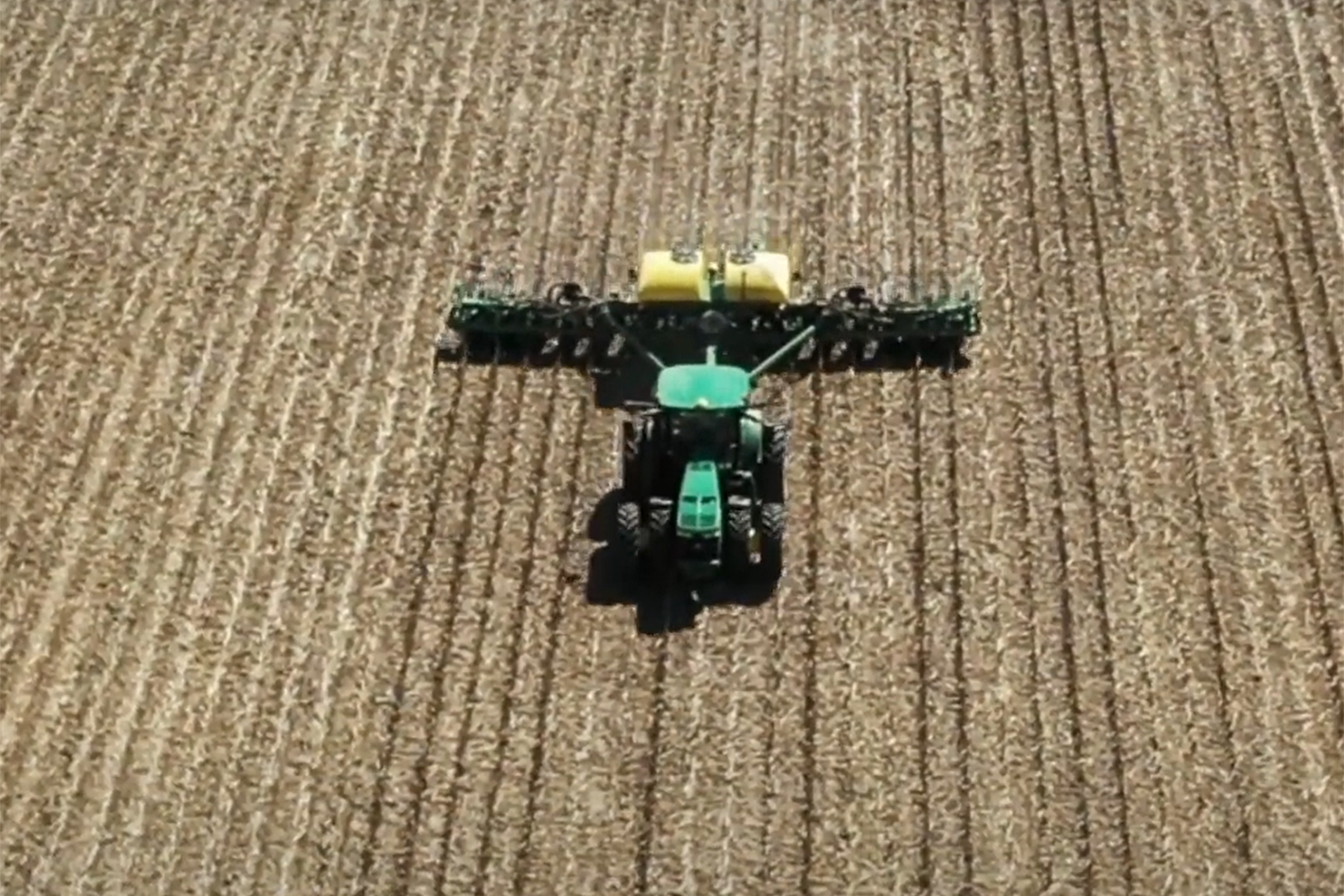
61% of Corteva's contracted seed growers use no-till or reduced-till methods to minimize soil disturbance where feasible. These practices help preserve soil structure, reduce erosion, and improve overall soil health.
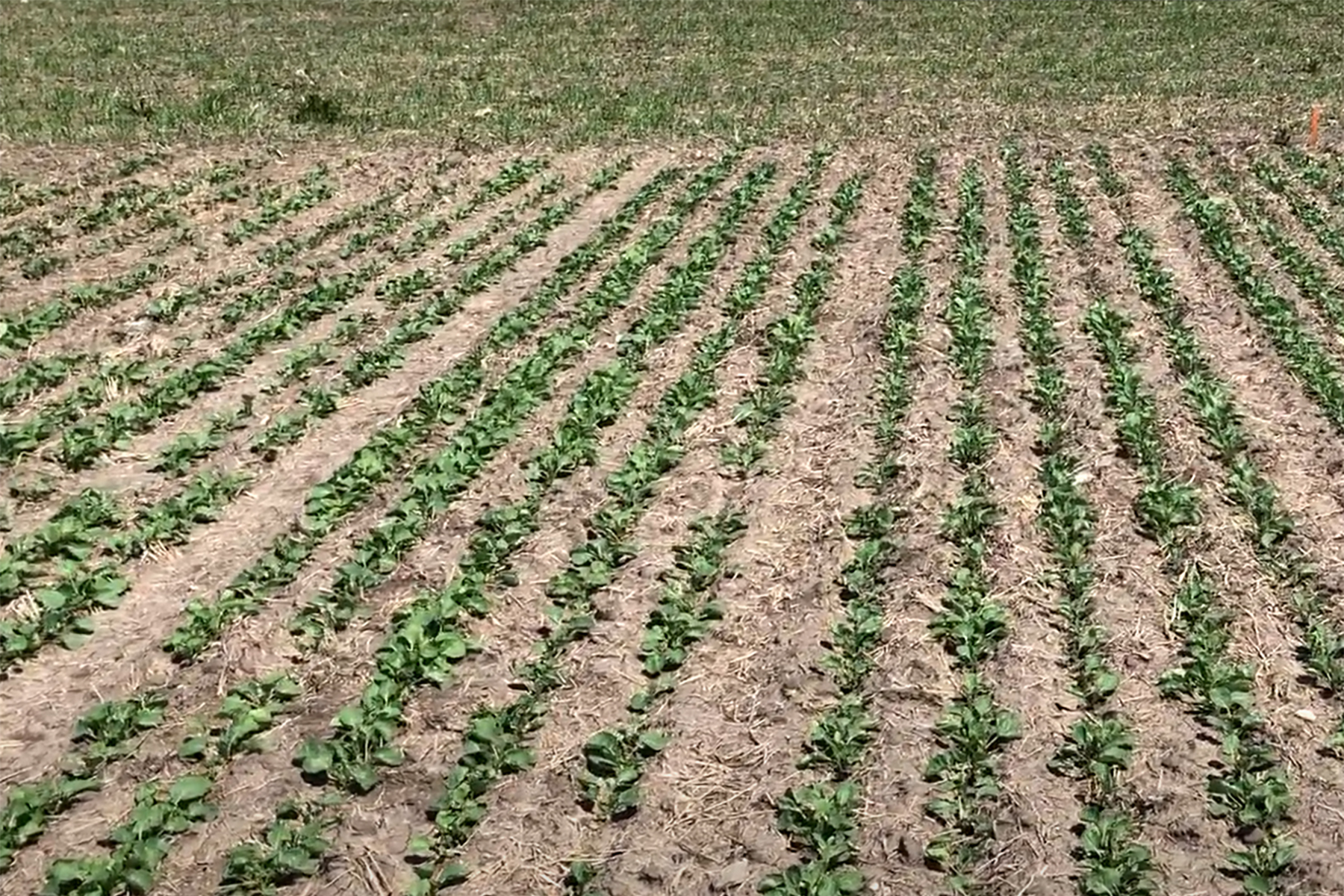
38% of growers plant an off-season cover crop, such as canola, where feasible. This helps further prevent erosion and lock in soil carbon.
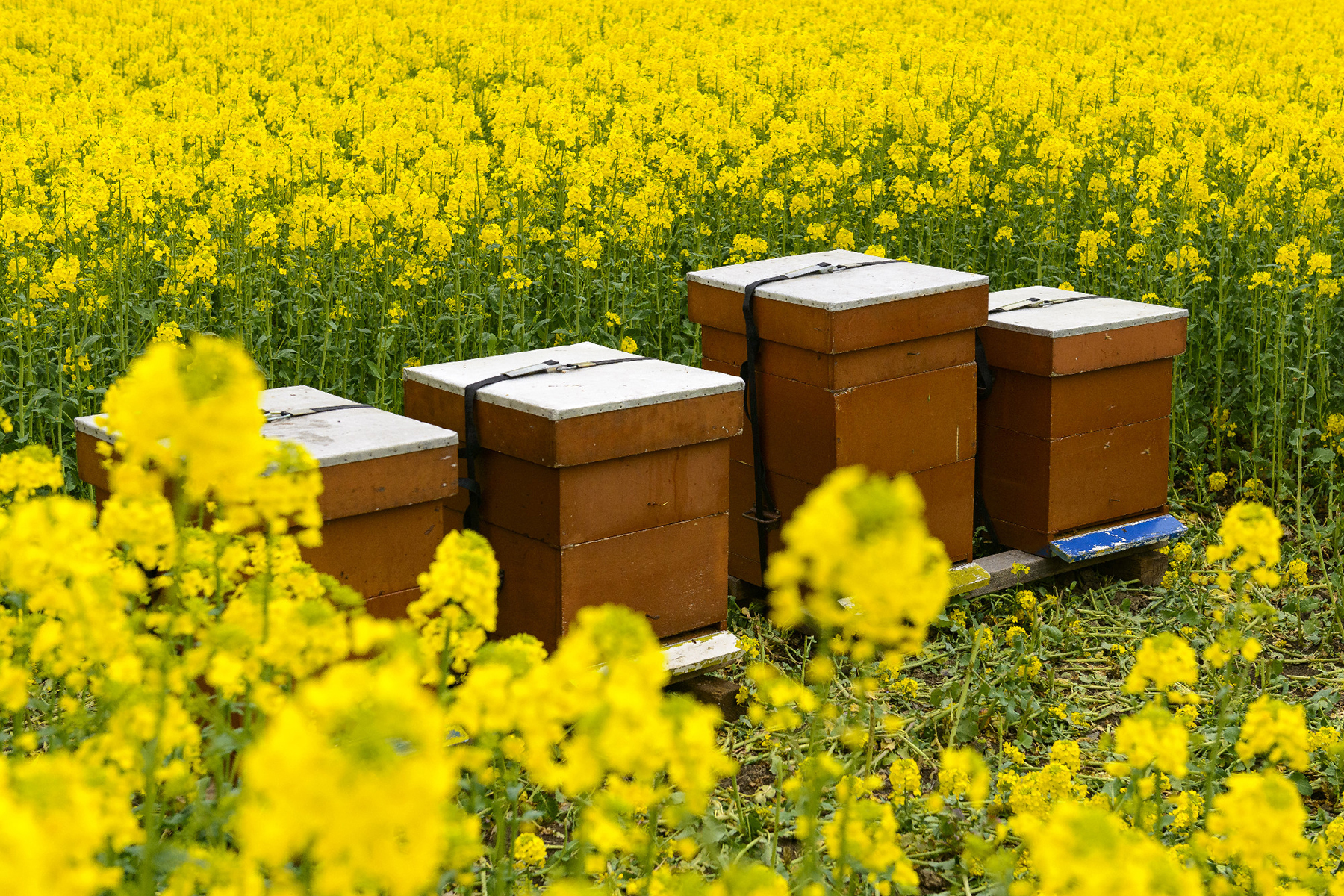
Once mature, canola can provide a habitat and food source for honeybees and other pollinators.
A range of conservation practices such as reduced tillage and cover crops are used on the majority of Corteva’s total seed production acres across the globe.1
- Contracted grower survey data is self-reported and validated by local agronomists. Respondents represented approximately 68% of Corteva’s global seed production acres in 2024.
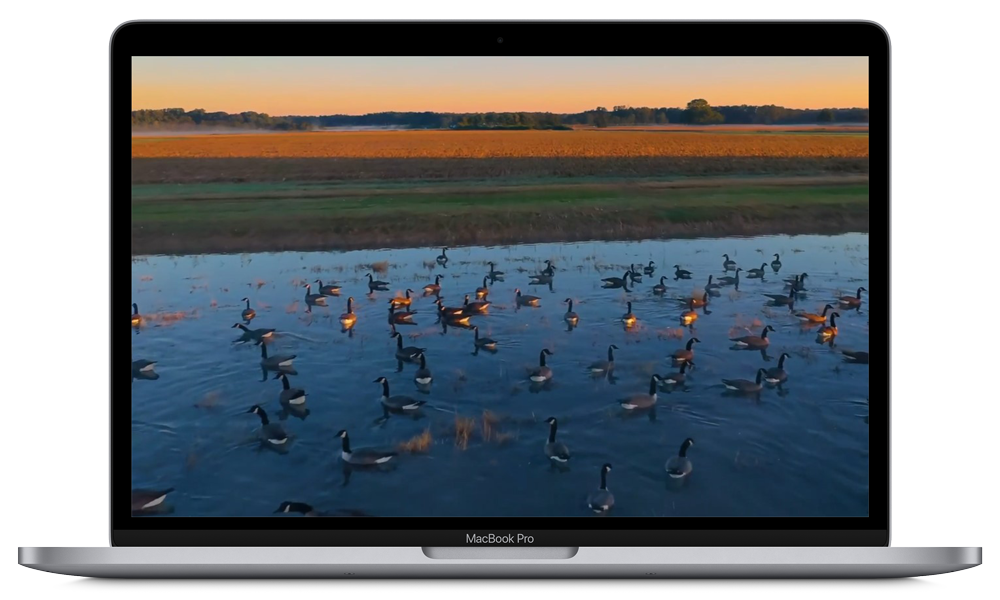
Learn more / Biodiversity
As we continue to focus on more sustainable farming to improve food security, we are hard at work to protect nature and conserve our land for future generations, including at Corteva facilities and production fields.
What’s next for our biodiversity focus area?
We will continue to maintain and implement biodiversity plans for Corteva-operated sites globally, based on our 2023 and 2024 assessments. These plans include creating pollinator and wildlife habitats, supporting soil health, planting trees, and preserving wetlands. We will also monitor and advance our ongoing conservation partnerships to confirm effective outcomes, as well as focus on developing products that support biodiversity and increase yield per acre.
